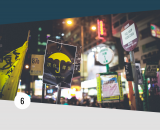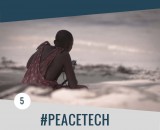Technology and the Moral Imagination in Local Peacebuilding

The peacebuilding practitioner, John Paul Lederach, neatly summarizes in “The Moral Imagination” how we can use technology to increase the impact of peacebuilding initiatives:
“Reach out to those you fear. Touch the heart of complexity. Imagine beyond what is seen. Risk vulnerability one step at a time.”
These four approaches are mirrored in four contemporary digital tools: social media, communication technologies, digital games, and online dialogue. Most local peacebuilders operate in tough operational environments with limited resources. New technologies offer possibilities for local peacebuilders to increase their reach and impact, overcoming both resource and operational barriers.
Social Media
Too often, communities in conflict know very little about each other. There is fear in the unknown and peacebuilders work hard to share stories across conflict divides. Yet persuading people to reach across to those they fear can be difficult. Can local peacebuilders use social media as a first step to bridge this divide?
The Peace Factory is a nonprofit organization promoting peace in the Middle East by making connections between people on Facebook. The Peace Factory initially encouraged people to post a simple message of love from Israelis to Iranians. The campaign quickly expanded to other conflicted pairs (Palestine-Israel, Morocco-Iran, Pakistan-Israel, America-Iran, and so on).
The group has since led a number of online and offline initiatives, including posting banners of love between Israelis and Iranians on buses in Tel Aviv and running a matching system called “Friend me for Peace” that encourages Facebook “friending” across conflict divides. Although its initiatives have not yet been formally evaluated, the organization points to the potential of personal sharing over social media as a low-resource complement to engaging in deeper, face-to-face discussions about identity.
Communication Technologies
Sometimes information surrounding a conflict is well off the mark and inaccurate — in reports of violence or relating what citizens ate worried about. Very often, information is either out of date or feeds a common narrative disseminated by more vocal parts of society (or both). Hardly ever is information based on evidence, much less recent evidence. How could it be? Depending on the context, it can be dangerous to ask about certain sensitive topics or logistically complicated to gather in formation. Yet without adequate information, understanding the complex drivers of a conflict and finding the best levers for intervention is difficult.
In the Somali region of Africa, Interpeace is working with three local research institutions to run regular, fast, and relatively low-cost participatory polling processes that will provide up-to-date and reliable information on people’s views about the democratization process. Combined with the rich contextual understanding and ongoing qualitative research of these institutions, polling data offers additional, strategic support to long-term change processes. What makes them operationally viable is a combination of text messaging (SMS) and online tools: Magpi for data collection on tablets, FrontlineSMS for data collection via SMS, First Mile GEO for data processing and analysis, and Elva for crowdsourcing. (For a full description of the system, click here.)
Digital Games
One of the hardest things for communities living in conflict is to imagine a common future. Community work shops, peace festivals, and conferences are important forums for encouraging this vision, but often hard to scale. Could digital games be a viable alternative for connection?
A group of Arab and Jewish Israeli teenagers recently built a peace village together — in the virtual realm of the Minecraft game world. It was an initiative of Games for Peace, a nonprofit organization that believes “online games represent a radical new way of bridging the gap between young people in conflict zones.” The initiative has not yet been evaluated, but the pilot was popular enough that a broader game is being planned.
Games for Peace demonstrates the potential for existing popular games to enable collaborative game-play situations where a peaceful future can be imagined.
Online Dialogue
One of the toughest challenges local peaceuilders face is facilitating positive contact to create the conditions for a brokered peace. But often physical contact between groups on either side of a divide is difficult for political, security, and purely logistical reasons. Can local peacebuilders engineer meaningful contact over online platforms?
Soliya’s Connect Program is an online, cross-cultural education program that links undergraduate programs in a hundred universities and has brought together students from twenty-seven countries since 2003. Students join a group of about ten students and two facilitators and meet online for two hours over ten weeks. They talk about everyday life and culture as well as controversial social and political issues. Facilitators are trained to manage tensions, introduce activities, and maintain an atmosphere for constructive dialogue. The program regularly receives rave reviews about its effectiveness in providing avenues for students to risk sharing their differences and rejoice in their similarities.
Technology and the Moral Imagination
These initiatives illustrate how technology can provide tools for local peacebuilders to encourage people to see that building peace is possible. Conflict situations, Lederach tells us, are often constrained by the sense of inevitability often present in conflict. What peacebuilders need to do is provide spaces for the moral imagination to emerge. Moral imagination is the ability to recognize turning points and possibilities in order to venture down unknown paths and create what does not exist. New technologies empower local peacebuilders to do what was previously impossible and can be effective tools of the moral imagination, shifting future trends in peacebuilding toward more local, impactful, and imaginative implementation.
Helena Puig Larrauri is a peacebuilding practitioner focusing on the use of technology to promote peace and pre vent conflict. She is a co-organizer of Build Peace and co-founder of Build Up, and she is on the Board of Advisers of the Standby Task Force, which she co-founded in 2010.

